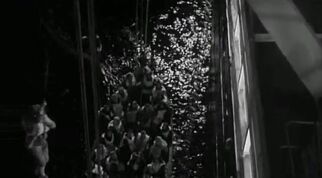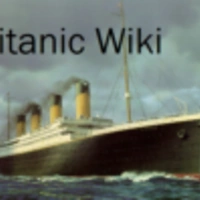Lieutenant Colonel Arthur Godfrey Peuchen (April 18th, 1859 - December 7th, 1929) was a Canadian businessman and RMS Titanic survivor.
Early life
Born in Montreal, Quebec, Peuchen was the son of a railroad contractor; his maternal grandfather managed the London, Brighton and South Coast Railway. He was educated in private schools. In 1888 he entered military life and became a lieutenant of The Queen's Own Rifles of Canada. Peuchen moved up the ranks and in 1911 was marshalling officer at the coronation of George V.
In 1897 Peuchen perfected plans for extracting useful chemicals from coarse hardwoods and waste woods, the principal products being acetic acid, acetate of lime, acetone, methanol and formaldehyde. The dyeing industries used the acids, formaldehyde was used by wheat growers in Canada, and acetone was used to manufacture high explosives like cordite. Peuchen subsequently became president of Standard Chemical, Iron & Lumber Company of Canada, Ltd. The company had many plants and facilities in Canada as well as refineries located in Montreal, London, France and Germany. Because some company facilities were located abroad, Peuchen often traveled to Europe by ship. One of these facilities was the one where Harry Markland Molson was a director of. Peuchen persuaded Molson to sail back to New York together on the Titanic, a decision that claimed Molson's life.
Peuchen owned a yacht named Vreda which crossed the Atlantic under its own canvas and was, for a time, Vice-Commodore and Rear-Commodore of the Royal Canadian Yacht Club.
Titanic

Peuchen uses the falls to reach Lifeboat 6 (screenshot from A Night to Remember)
Peuchen boarded Titanic at Southampton on April 10th 1912 as a first-class passenger on his fortieth transatlantic voyage. He reportedly was concerned that Captain Smith was in command, because he thought Smith to be a poor commander and also that Smith was too old. On the night Titanic sank, Peuchen saw that Lifeboat 6, the boat which contained Quartermaster Robert Hichens and Molly Brown, was poorly manned and came forward to Second Officer Lightoller, saying he was a yachtsman. Captain Smith was standing nearby and suggested Peuchen go down to the Promenade Deck, so he could break a window and climb into Lifeboat 6. Lightoller replied, however, that Peuchen could slide down the ropes to enter the boat if he was as good a sailor as he claimed. Peuchen then took a rope, swung off the ship, and climbed hand-under-hand down to Lifeboat 6. He was the only male passenger that Lightoller would allow into a lifeboat that night. He later claimed he did not realize Titanic was doomed until he viewed the ship from the lifeboat.
Because Peuchen was a military officer, he came under scrutiny for allowing Hichens to prevent the boat's occupants from going back for survivors and for tolerating the verbal abuse Hichens reportedly gave. Peuchen was also criticized for exaggerating his own role, and did not recognize the pivotal role Margaret (Mrs J J) Brown played in leading the lifeboat's occupants in rowing and in raising morale. It is possible that Peuchen, as a yachtsman, may have thought that second-guessing an officer in charge would encourage mutiny.
Peuchen publicly blasted Captain Smith and the crew of Titanic, claiming their seamanship to be substandard; however, his official testimony at the United States Senate inquiry into the disaster was tempered somewhat from interviews he gave in the days after the rescue.
In 1987, Peuchen's wallet was recovered from the area around the remains of Titanic; streetcar tickets, a traveler's cheque, and his calling card were found inside.
Later years
In Toronto, Peuchen was deemed a coward largely because of his self-serving attitude, and speculation gathered that his expected promotion to Lieutenant-Colonel in The Queen's Own Rifles would not be awarded. Despite the publicity, the promotion was made on May 21, 1912, and he also received the Officer's Long Service Decoration. When World War I began, Peuchen retired from Standard Chemical to command the Home Battalion of the Queen's Own Rifles.
In later years, Peuchen's standing slipped greatly, as a man who survived both the sinking of Titanic and World War I. He made bad investments and lost much of his money during the 1920s. Peuchen died in Toronto and is buried in Mount Pleasant Cemetery.
Portrayals
- Robert Ayres (actor) (1958) (A Night to Remember)
References
External links
- Middletown, Jesse Edgar. The Municipality of Toronto - A History. Dominion Publishing, 1923.
- Encyclopedia Titanica biography
- Arthur Godfrey Peuchen at Find a Grave
